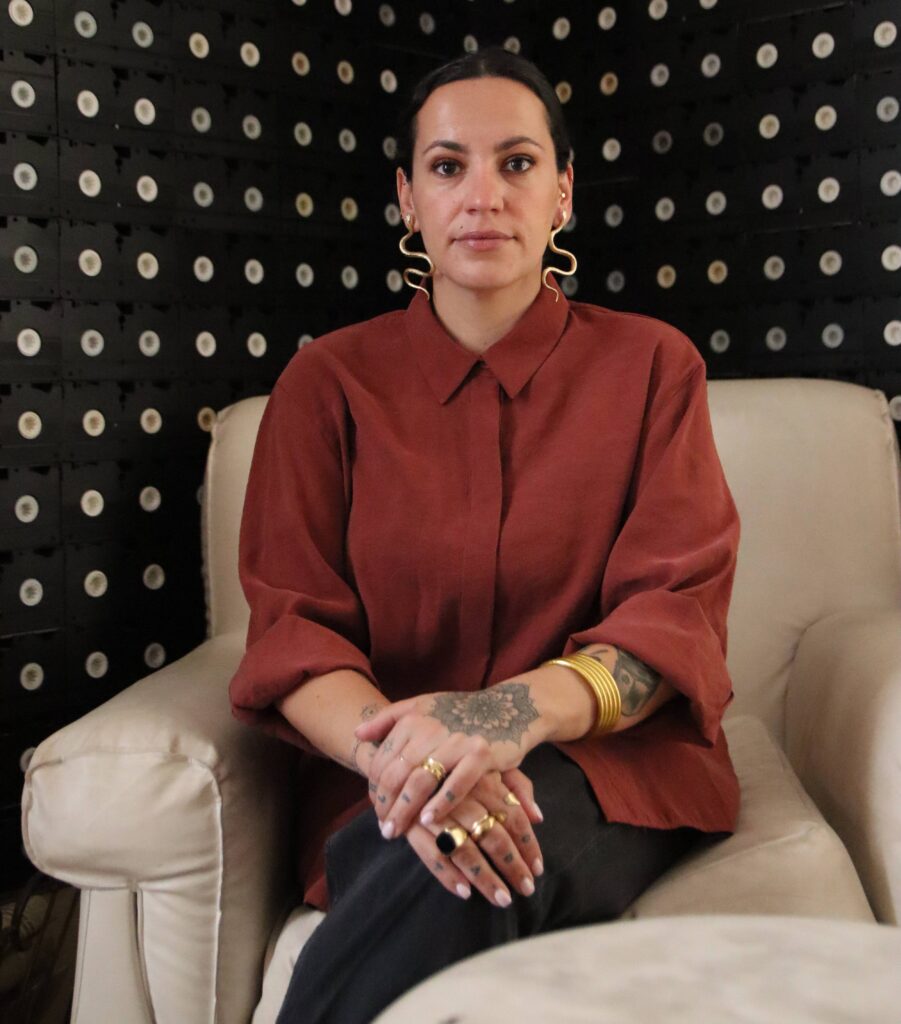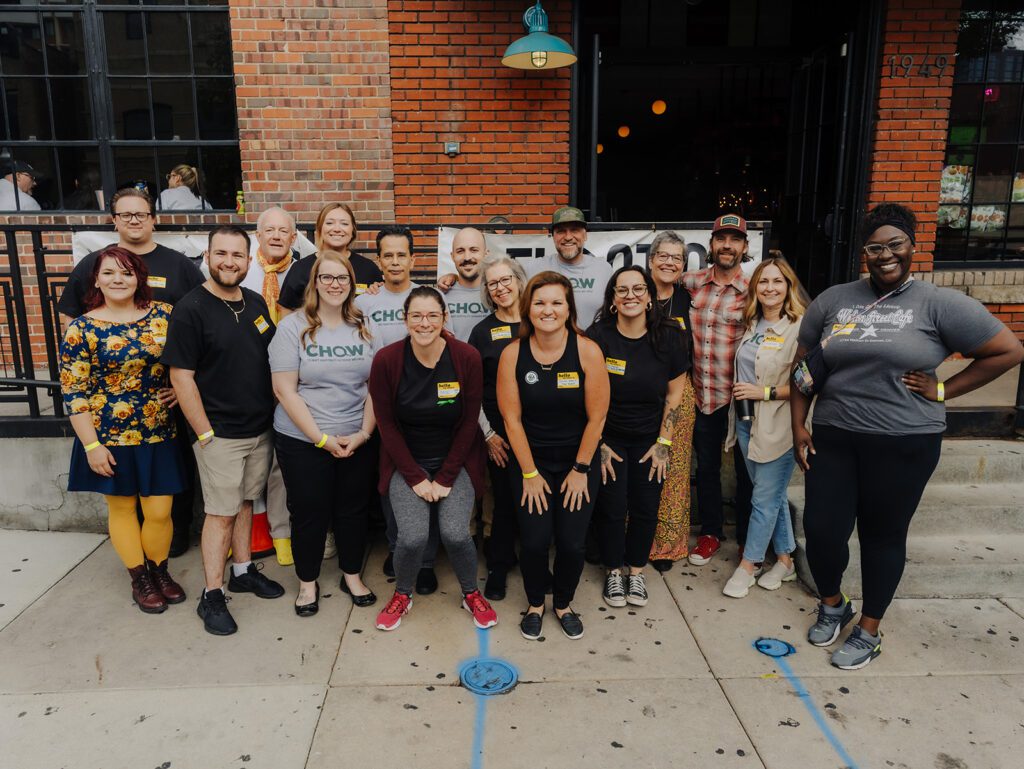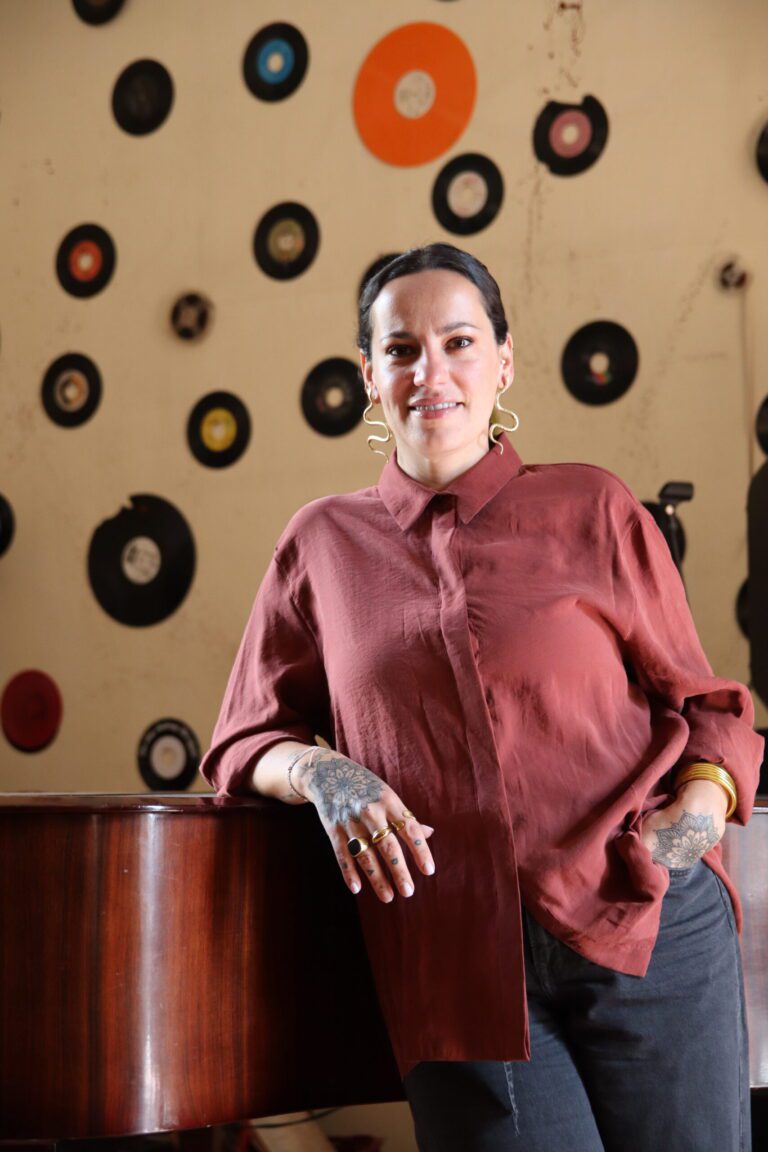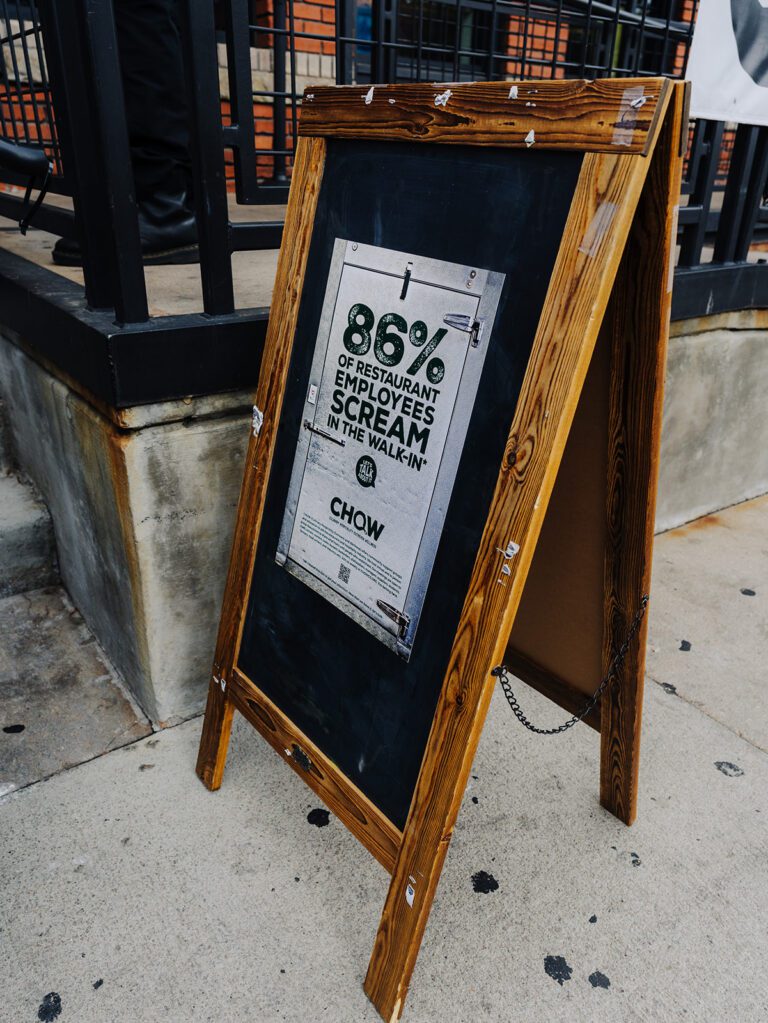
Healing the Industry from the Inside Out
A Conversation with Jasmin Parks Papadopoulos, Chief Growth Officer for CHOW
There’s something quietly radical about CHOW — Culinary Hospitality Outreach and Wellness — and perhaps that’s because Jasmin Parks Papadopoulos doesn’t lead with noise. She leads with listening.
A third-generation chef who found herself spiraling in the same kitchens where she thrived professionally, Jasmin’s journey mirrors so many in the food world: relentless hustle, masked pain, and a deep longing for something more human.
After stepping away during the Great Resignation, she didn’t walk away from the industry — she returned with purpose. And in doing so, she built a lifeline for others still deep in it.
” The worse my mental health was, the better my career looked from the outside. “
Before the pandemic, less than 15% of restaurant workers had healthcare coverage. Many live shift to shift, balancing rent, groceries, and medical bills with little room to breathe. Southern Smoke stepped in where no one else would — covering essential costs, providing emergency relief, and offering access to no-cost mental health care across 11 states and Washington, D.C. through a university affiliate network.
Their work is anonymous, compassionate, and immediate. Whether you’re facing eviction, addiction, grief, or the aftermath of a natural disaster, Southern Smoke is showing up — not just for individuals, but for families. Over 55% of their grant recipients are parents of at least one minor, and many are single caregivers receiving no child or marital support.
Quickfire with Jasmin Parks Papadopoulos
In one sentence, tell us what your organization does:
We improve the lives of food/beverage/hospitality workers through shared stories, skills and resources.
Were there any specific challenges or stories that motivated or inspired you to become an advocate of change in the restaurant industry?
While I was in the industry, I assumed that my struggle was very personal and applied only to me. I was diagnosed with High Functioning Anxiety very late in life, and the worst my mental health was, the better my career was doing. As a result of that, and how my anxiety made me show up as a well organized and methodical person, I never had to look too deeply at how I was struggling.
Which are the biggest problems your organization works to change?
We know the food/beverage/hospitality industry faces disproportionately high rates of substance misuse and suicide. We lift each other up so that we lose no one else to mental health struggles, addiction, or suicide. We hold multiple weekly group discussion meetings online and in person, and offer classes in workplace wellness and both suicide and overdose prevention. We also can connect you with dozens of resources. We aim to create a sustainable workforce through community care so we can make the industry a healthier, saner place for all.
What are some of the challenges you faced when starting your organization?
We started shortly before the pandemic and met only in person. As a result of the pandemic, our community grew stronger when we were able to integrate an online presence – this challenge has now allowed us to thrive and shape so much of our programming to make it accessible to all.
Which sources of funding helped you launch and sustain the organization? Was there something that helped you find them and believe in your idea?
We are grateful for all of our partners and their impactful donations that have supported our work so far. We have been fortunate to have collaborated with restaurants on For a Cause partnerships, where businesses who align with CHOW’s mission and work closely with CHOW will create fundraising programs to support CHOW.
What other pressing issues do you identify in the restaurant industry beyond the one your organization is addressing?
Food/beverage/hospitality workers are often underpaid, under supported and under represented and have little to no culture of speaking out about challenges. We are still new to conversations about mental health and few organizations and businesses allow for folks to show up as “their whole selves”, bringing their personhood into their work because so much of it is forward facing. We aim to educate about psychological safety, which encourages that piece to become a supportive, inclusive culture.
What’s your vision for the restaurant industry’s future, especially regarding on human sustainable practices?
We would love for them to visit our website and check our free tools for businesses – our Workplace Wellness Toolkit and our Scripts for Challenging Conversations are great guidelines for how to shape culture, start conversations and support ourselves and our teams more effectively.
How can small, independent restaurants create a more sustainable and humane environment for their staff and customers?
We would love for them to visit our website and check our free tools for businesses – our Workplace Wellness Toolkit and our Scripts for Challenging Conversations are great guidelines for how to shape culture, start conversations and support ourselves and our teams more effectively.
What is your perspective on the role of press and media in the restaurant industry? How do you believe they can both positively and negatively influence the sector?
Historically, we’ve had very little to no representation in the media until recently. Largely, what was portrayed was a lot of the harsher and more damaging realities of the industry – challenging leaders, high stress environments, and so much more. We would love for the media to elevate the voices and missions of the impactful organizations that are committed to doing the work to make the industry a more sustainable place for all food/beverage/hospitality industry workers.
What are some long-term impacts you hope to have in the restaurant industry?
We hope to create a sustainable workforce where folks are empowered with the knowledge that there are resources available to them so that they may invest in themselves and their teams to incorporate wellness and mental health into their culture.
What advice would you give to others who are looking to start a non-profit or initiative to help the restaurant industry?
Let’s partner! CHOW loves collaboration and we encourage all folks starting out to seek out partners, collaborators, and shared missions to work with.
Why CHOW Matters Now
The industry is slowly waking up. Press outlets, leadership, and even diners are beginning to ask better questions: Is this place sustainable for its people? What does care look like in the kitchen?
CHOW isn’t just responding — they’re leading. Through partnerships with mission-aligned restaurants, grants, and peer-powered programming, they’re building a blueprint for change.
Advice to others looking to create impact?
Don’t go it alone. Let’s partner. Collaboration is everything.
Visit chowco.org to access their free toolkits and join a weekly meeting.
Follow along @chow_org for updates and inspiration.


